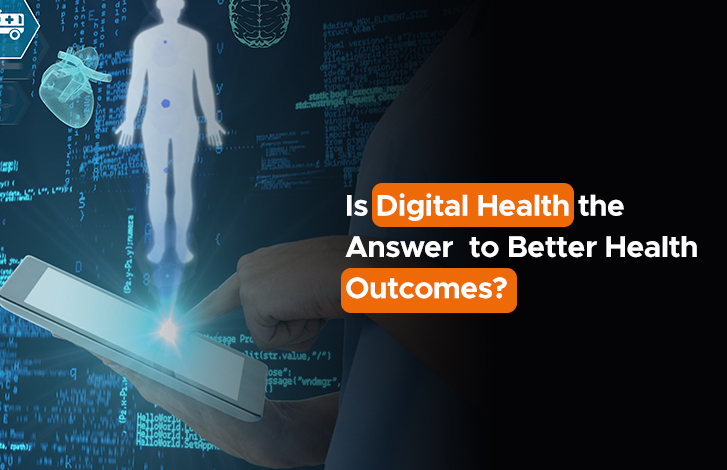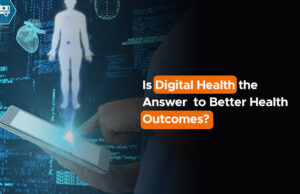The recent digitization of healthcare and the concept of virtual healthcare delivery have transformed the structure of the healthcare industry. This metamorphosis has brought about a vast change in the way healthcare is delivered, received and how transactions are made.
Furthermore, it has provided a secure and organized platform to maintain records, manage staffing, and carry out several cumbersome operational tasks at healthcare practices.
The 2019 pandemic has allowed for a supreme technological boost in the healthcare industry. However, the question of its positive impact on creating population wellness and improving health outcomes has yet to be answered.
In the structure of this article, we shall discuss the concept of digital health, its use in the healthcare industry, and its impact on societal wellness.
What is Digital Health?
Digital Health is any technology that is utilized for the purpose of recording, storing, or extracting data for healthcare purposes. There are several forms of digital health that are currently being used by healthcare facilities.
The term Digital Health encompasses aspects of telehealth and telemedicine, as well as wearable medical devices, health informatics, and mobile health.
Simply put, Digital Health is the intersection between health and technology.
Healthcare and technology experts have long discussed the beneficial outcomes of using Digital Health. The concept only gained more popularity under the global medical strain during the COVID-19 pandemic.
However, since 2019, there has been an increasing popularity of digital health. Statistical sources claim that pre-pandemic, only 11% of US hospitals adopted telehealth platforms. These rates shot up drastically to 36% by August 2020.
To put things into perspective, let’s explore whether the impact of Digital Health in healthcare practices is beneficial for societal health.
Benefits and Impact of Digital Health
Lower Healthcare Costs
Technological advances in Digital Health allow for more efficient healthcare delivery through telemedicine and telehealth platforms. By avoiding the expense of hospital resources on readmissions and monthly appointments, healthcare providers can conduct online consultations, keep track of extensive patient records, and regularly monitor chronic patients to record their health status.
Electronic data entry protocols also promote accessibility and reduce clutter at healthcare facilities. This eventually requires fewer resources to tackle operational matters, reducing healthcare costs.
Providing efficient care and avoiding readmissions means hospitals can utilize resources on critical cases and. Additionally, the institutions can manage less severe cases through digital health. This allows hospitals to cater to several cases simultaneously, which helps improve health outcomes.
Better Patient Engagement
Since patients are unlikely to opt for treatment that may seem like a prolonged, tedious exercise. Digital Health can not only cater to the needs of patients while they are at home, but it can also allow them to remain engaged throughout the process.
Digital Health platforms possess patient engagement-improving features such as daily reminders for taking medicine, tracking movements and activity. Additionally, it helps monitor and display improving symptoms and laboratory results.
This not only keeps the patients informed but also allows them to feel more driven towards better health goals. All the while acquiring healthcare in the comfort of their homes. Eventually, it contributes to improving health outcomes.
Streamlining workflows
One major benefit of Digital Health is that it can help a healthcare facility reduce basic human error and diminish inefficiencies. This helps formulate a profitable framework of operations.
If healthcare providers spend countless hours on paperwork and claim filing or retain a large workforce that is still incompatible with the facility’s business workflow. It means that providers are unable to spend that time catering to patients and providing essential medical intervention.
Digital Health takes over the tedious data entry tasks, secure patient records, help with filing successful claims, and align staffing workflows. Ultimately ridding healthcare providers of the stress of handling operational responsibilities.
When healthcare providers focus more on providing optimum healthcare and let technologies such as digital health manage their business, an improvement in health outcomes is inevitable.
Challenges of Digital Health
Large chunks of regular data entry, interpretation, coding, and exchange can raise several challenges in Digital Health.
One such challenge is interoperability. Interoperability is defined as a feature or characteristic of software that allows it to integrate with other products or software. In order to maintain the security and confidentiality of patient information and clinical documentation, interoperability can be a challenge. It can sometimes become a barrier to achieving maximum potential with digital health.
Furthermore, data security is another challenge that is faced by Digital Health platforms. The 1996 Health Insurance Portability and Accountability Act (HIPAA) was formulated in the US to protect hospital data and patient documents from unauthorized access. However, this act was later changed, including the amendments made to be later called the Health Information Technology for Economic and Clinical Health (HITECH).
However, even though the new version of this data security act allowed for further limitations on access to data. There is still a need for a more robust set of rules for patient data protection.
Conclusion
All in all, Digital Health is a phenomenal platform that can prove beneficial for the healthcare provider, his team, and patients.
The positive impact of Digital Health on healthcare practices clearly outweigh the challenges. As an overall profitable technological construction, one can hope that future versions and innovations in Digital Health can help eliminate present challenges and perfect the Digital Health experience.







